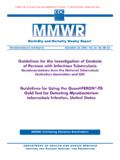Transcription of The Michigan Psychological Association and the …
1 The Michigan Psychological Association and the Society for Personality Assessment Present Intermediate Level Training in R-PAS Administration, Coding, & Interpretation Robert E. Erard, , Gregory J. Meyer, , & Joni L. Mihura, Friday, January 29 Saturday, Jaunary 30, 2016 14 CE Credits Henry Center for Executive Development at Michigan State University 3535 Forest Rd, Lansing, MI 48910 Workshop Description This two-day, intensive training is designed to prepare participants who have some basic familiarity with R- PAS to begin using the system in active clinical or forensic practice and to improve skills in administration, coding, and interpretation for those who are already using it. It has a practical and applied focus. It should be useful for practitioners, instructors, supervisors, and advanced students. Using clips from actual video or written records, we illustrate how to effectively manage common challenges in administration, which includes establishing the assessment setting, managing response productivity, formulating clarification questions, and documenting the record.
2 We also use actual responses to address challenges in coding, with a particular focus on four categories of codes: Form Quality, Determinants, Cognitive Codes, and Thematic Codes. Finally, we foster skills in clinical interpretation by focusing in-depth on two cases (one adult and one child or adolescent). The cases are accompanied by the new R-PAS case-based interpretive narrative. The training assumes some basic familiarity with the R-PAS Manual (The Rorschach Performance Assessment System, Administration, Coding, Interpretation and Technical Manual, by Meyer, Viglione, Mihura, Erard, & Erdberg, 2011). After registering for the workshop, a 10% discount code will be forwarded to participants for the Manual (printed or e-Book form) at Attendees are encouraged to register for an online R-PAS account if they do not yet have one. Registration is free and once registered, users have access to a variety of training resources and can purchase protocol scoring allocations and other products, including the Portable Form Quality Tables and Coding Guide, Hermann Rorschach s Official Inkblots, Reference Sheet for R-PAS Administration, Color Location Charts, and Color Hand Scoring Forms.
3 Workshop attendees with an account will be given one free protocol scoring allocation that will allow for the coding and processing of a protocol on Learning Objectives 1. Illustrate proper seating and arrangement of the testing room for taking a record by laptop or paper and pencil. 2. Summarize the procedures for managing response productivity. 3. Explain the goals of the Clarification Phase, including the four instances when a clarification question is needed for Determinant codes. 4. Illustrate how to properly document a record, including coding relevant nonverbal behavior and where object features reside on the inkblot. 5. Practice mastering challenges in coding Form Quality, Determinants, Cognitive Codes, and Thematic Codes. 6. Apply R-PAS interpretive procedures and guidelines to cases. Skill Level of Participants Intermediate. Participants should have basic familiarity with R-PAS.
4 Presenters Robert E. Erard, is Clinical Director of Psychological Institutes of Michigan , in Bloomfield, Michigan , where he practices clinical and forensic psychology. He is a past president and Fellow of the Michigan Psychological Association , from which he received the Distinguished Psychologist Award in 2004. He is also a past president of the Society for Personality Assessment and of the Michigan Association for Marriage, Divorce, and the Family, and a Fellow of the American Psychological Association (Divs. 31 & 42), from which he received the Karl F. Heiser Presidential Award. He has served as a delegate and member of the Scientific Review Committee for the International Rorschach Congress and as the Michigan Representative to the APA Council. Dr. Erard is an Editor for the Clinical Case Applications section of the Journal of Personality Assessment and Head of the Assessment Section for Psychological Injury and Law.
5 He also serves on the Editorial Boards for the Journal of Child Custody and Practice Innovations. He has published numerous articles on Rorschach assessment, forensic Psychological assessment, professional ethics, psychometrics, and other topics and is currently editing a book with F. Barton Evans on the Rorschach in Multimethod Forensic Practice, to be published by Taylor and Francis in 2016. He has offered over 100 statewide, national, and international workshops and symposia on these and other topics. Gregory J. Meyer, is a Professor of Psychology at the University of Toledo, where he has been since 2003. Before this he was at the University of Alaska Anchorage and also the University of Chicago Medical Center, where he was the director of the inpatient and outpatient Psychological Assessment Service. He was the Editor of the Journal of Personality Assessment from 2002 to 2013. His research focuses on Psychological assessment, with an emphasis on the integration of personality assessment methods.
6 Much of his work has addressed performance-based measures of implicit processes, most notably the Rorschach. He has made seminal contributions to the published literature in this area, as well as in psychometrics and assessment more generally. On four occasions the Society for Personality Assessment has given him Distinguished Contribution Awards for articles in the published literature. He is a Fellow of Division 5 (Evaluation, Measurement, & Statistics) of the American Psychological Association and of the Society for Personality Assessment. He is currently co-editing a case book to be published by Guilford in 2016 entitled Applications of the Rorschach Performance Assessment System (R-PAS). Joni L. Mihura, , is an associate professor in psychology at the University of Toledo, where she teaches personality assessment, an advanced assessment practicum, and psychodynamic/integrative therapy. She obtained early career awards from the American Psychoanalytic Association and the Society for Personality Assessment (SPA).
7 In the Psychological assessment domain, she has published many articles and served on SPA s Board of Trustees and on the editorial board for the Journal of Personality Assessment and Rorschachiana. She is one of the developers of a new Rorschach system the Rorschach Performance Assessment System, on which she is editing a case book to be published by Guilford in 2016 entitled Applications of the Rorschach Performance Assessment System (R-PAS). Schedule * There will be 15 minute breaks in the morning and afternoon DAY ONE Time Objectives Covered 8:30 am 9:00 Registration 9:00 - 10:30 Mastering Administration Challenges 10:30 - 12:30 Mastering Coding Challenges 12:30 - 1:30 Lunch 1:30 - 3:30 Case 1: Principles and Procedures for Interpretation; Case Review 3:30 5:00 Case 1: Case Review and Generate Summary Inferences DAY TWO Time Objectives Covered 9:00 - 10:30 Avoiding Administration Pitfalls; Administration Practice 10:30 - 12:30 Special Problems in Coding/Coding Practice 12:30 - 1:30 Lunch 1:30 - 3:00 Case 2: Review of Coding.
8 Case Review 3:00 - 4:30 Case 2: Case Review and Generate Summary Inferences 4:30 5:00 Special Topics and Questions Continuing Education Credit Participants in this program are eligible for 14 hours of continuing education credit. The program must be completed in its entirety to qualify for this credit ( , partial hours cannot be accommodated). This program is co-sponsored by the Michigan Psychological Association and the Society for Personality Assessment (SPA). MPA is approved by the American Psychological Association to offer continuing education for psychologists. MPA maintains responsibility for this program and its content. Hotel Reservation Information Accommodations can be made at the Candlewood Suites, which adjoins the Henry Center. A limited block of rooms at the Candlewood Suites, will be held until December 11, 2015 at a cost of $95 each. When making your reservation, let Candlewood Suites know you are with the MPA Conference.
9 For Reservations call: 517-351-8181 ( ). REGISTRATION FORM Intermediate Level Training in R-PAS Administration, Coding, & Interpretation Friday, January 29 Saturday, January 30, 2016 14 CE Credits The Henry Center, Michigan State University, Lansing, MI Name Degree Street City State Zip Phone Email: Registration Fees MPA Members Non-MPA Members Professional $320 $340 Student $80 $100 CEU Processing Fee (14 hours; Optional) = $15 Total Amount Due: $ Check enclosed. Please make payable to Michigan Psychological Association Please charge my credit card: Master Card Visa AMEX Discover Name on credit card: Card Number: Expiration Date: / 3-digit code from back of card: (required for processing) For AMEX 4 Digit on Front Billing address (if different from above): Register online at or send in completed registration form by mail/fax/email to: Michigan Psychological Association 124 W.
10 Allegan, Ste. 1900, Lansing, MI 48933 Phone: or Fax: Email.



